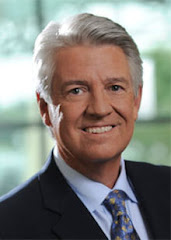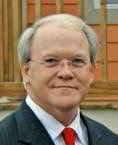 How many more?
How many more?That’s the question people should always ask whenever they hear about a church buying a clergy abuse victim’s silence with hush money.
It is the very nature of such agreements that they hide in the dark. That’s the reason for them. By design and function, they keep troubling news quiet. Most of the time, they work. The people never talk, and you never hear about the hush money or the reason for it.
So, when you do wind up finding out about a hush money agreement, you can feel pretty confident that there were likely others -- others that stayed in the dark.
They’re sort of like cockroaches. When you see one, you know there are more. They nest inside the walls in the dark spaces.
I figure the New Life Church probably has so many hidden cockroaches that the only way they’ll ever get things clean is if they tear out those walls and start fresh.
After all, this is a church whose leaders not only paid a young man to keep quiet, but then they effectively denied doing it. Instead, they had the sickening gall to claim they were trying to help the young man. “Compassionate assistance,” said Brady Boyd, the senior pastor.
When church leaders are so morally compromised – and so blind to the reality of their deeds -- I think you have to figure that those dark spaces are going to harbor a lot of cockroaches.
And why wouldn’t they? If you think cockroaches constitute “compassionate assistance,” then you aren’t likely to see any problem with their presence.
So how many cockroaches were New Life leaders willing to tolerate for the sake of covering up Ted Haggard’s dirty deeds? They’ve recently admitted that there were “several others” who reported “inappropriate behavior” by Haggard. Did the church pay them hush money too?
Maybe the fact that New Life hushed up such foul deeds is why Ted Haggard was able to deliver a guest sermon at an Illinois church as recently as last November. Maybe another church would have been a little less likely to put Haggard in the pulpit if they knew he had preyed on people looking up to that pulpit.
I wish the New Life cockroaches were a unique species… but they’re not. Baptist churches also harbor cockroaches in the dark. They use hush money agreements to silence clergy abuse survivors, including child molestation victims. And they often leave perpetrators in the pulpit when they do it.
Consider the Baptist General Convention of Texas. It’s the largest statewide Baptist organization in the country, and tragically, it’s the statewide Baptist organization that claims to be doing more than any other on the subject of clergy sex abuse. Yet we know that, over the course of almost a decade, their long-time lawyer repeatedly tried to use hush money agreements.
This was the lawyer that the Baptist General Convention of Texas would send out to churches to “help” them when they had to deal with clergy sex abuse. “Help” sometimes came in the form of teaching the churches how to pay hush money.
In 1998, Deborah Dail was offered “assistance” for therapy from the Baptist General Convention of Texas. But the offer came with strings. To get the “assistance,” she would have to agree to never “talk to the press nor make her story public.” She refused.
In 2005, the same BGCT lawyer, helping the church, tried to get me to sign a hush money agreement. I wouldn’t.
In late 2006, the same BGCT lawyer was one of the attorneys in a case in which the victim actually did sign a hush money agreement with the church. The victim didn’t speak of it, but in unusual circumstances, others did and the agreement eventually came to light.
In May 2007, the same BGCT attorney wrote on the Spiritual Samurai blog that I was wrong to complain about Baptists’ use of such agreements with clergy abuse survivors. He said they were “a standard provision” and that I should know that. So obviously, this guy doesn’t see anything wrong with hush money in clergy abuse cases.
Given his “standard provision” attitude and given our knowledge of 3 specific cases in Texas alone, people should ask, “How many more?”
How many Baptist clergy abuse survivors have been silenced with hush money?
How many Baptist clergy perpetrators have been left in Baptist pulpits because their deeds were hushed up?
How many cockroaches are hiding in the darkness of Baptist walls?
______________________________________________
Incidentally... guess what pastor Brady Boyd is going to preach about at New Life Church this coming Sunday? Forgiveness. Pathetically predictable, huh?
Hear Haggard’s recorded phone call telling the young man, "I'd be happy - happy - to try to find some money for you somewhere...."





























